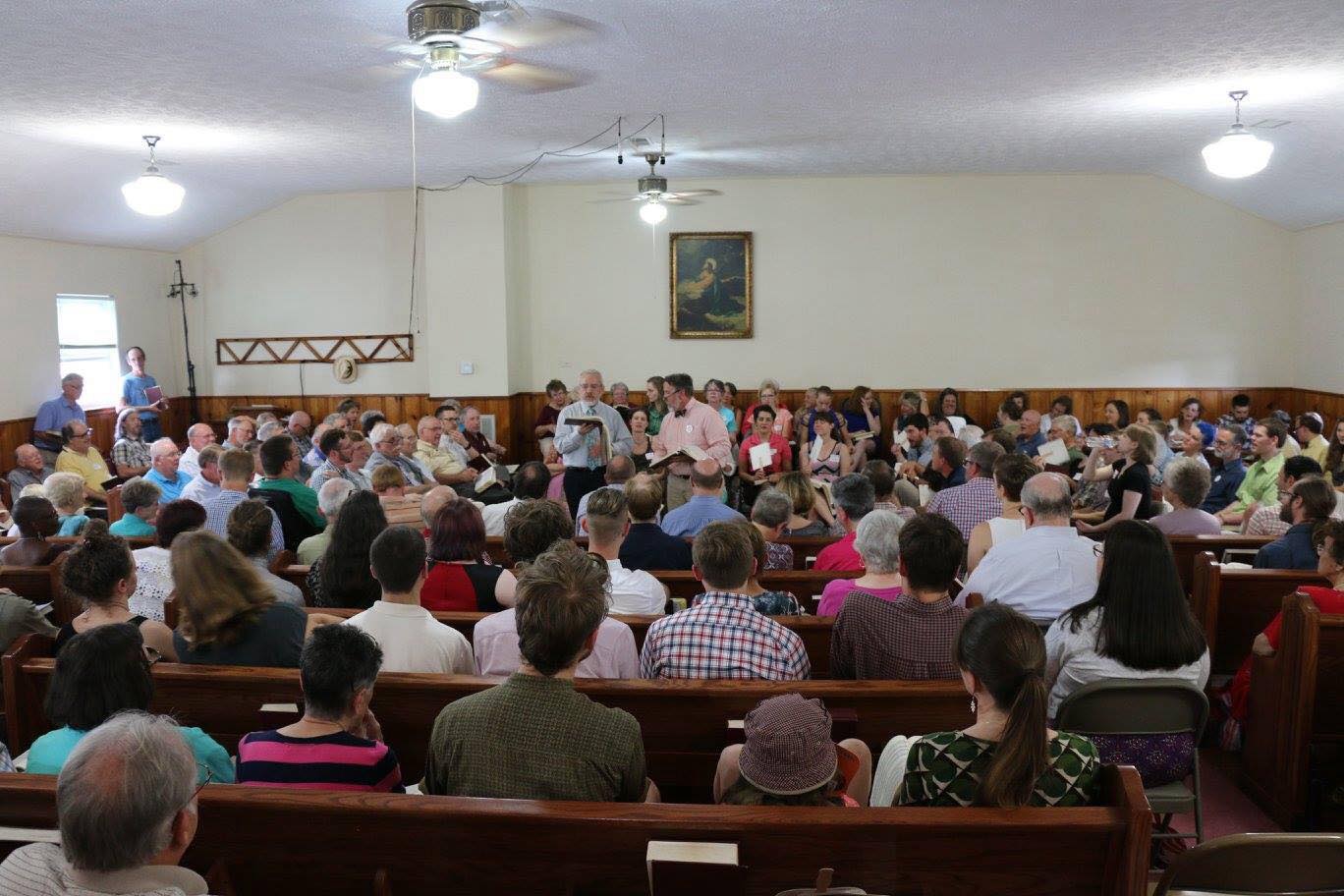
I’ve mentioned to people off and on that one of the things I do for fun is sing a kind of music called Sacred Harp, or shape-note singing. This usually elicits a polite smile and a “that’s nice” sort of response. Basically, unless they are a bigger music geek than the norm, most people have no idea what it is I’m talking about.¹
In the proto-version of this blog, back in the days when Facebook notes were a thing, the very first note that I posted was about Sacred Harp singing. I had come across a short article online that laid out some of the basics of the music, its roots, traditions, and modern practice.
The link is now dead, so I can’t direct you to the piece, but here’s a short excerpt:
The Sacred Harp repertoire draws upon late 18th- and 19th-century hymns from the Christian tradition. These fuguing tunes are set to four-part, archaic harmonies that hint of medieval “organum,” with strong fifths and frequent note doubling. Performing them is an exercise in musical democracy. Each participant gets a turn at leading a song and making important musical decisions.
Shape-note singers sit or stand in a hollow square, which to Jessica Beers, chairperson of Portland’s All Day Singing, “is a living manifestation of the ‘different but equal’ axiom. The notation makes it possible for anybody to learn how to read the music, and the community makes it welcoming for anybody who is interested in participating in the tradition as we know it.”
It’s important to point out that this is not a performance tradition, but rather a social and spiritual one. When we get together, whether in a small local monthly session or in larger all-day singings, we sing for ourselves, for each other, for all those who came before us in this tradition, and for all those who will come after.
While the music is Christian in its theology, singers today come from all religious backgrounds and none. All are welcome. It is an inclusive tradition.
In the Sacred Harp community we are admonished to “bring nothing to the square that divides us.” Whatever our differences in religion, race, gender, sexual orientation, economic class, social status, or political beliefs, when we come together we sing as one.
To give you an idea of what this music is like, check out the videos below.
This first is the trailer from the documentary film, “Awake My Soul.” In the 11 years that I’ve been singing this music I’ve had the honor to get to meet, sing with, and become friends with some of the folk featured in the film and who appear in the trailer.
This next one is from the 2017 Ireland Sacred Harp Convention held in Cork. While this is an American musical form, in recent years the music has spread abroad with regular singings in Canada, Ireland and the UK, Germany, Poland, Sweden, France, Australia, Japan, South Korea, and even Israel.
This next one is from the 2016 Michiana Convention held each July outside of Goshen, IN. This clip picks up with a song being led by my daughter, Sarah, who started coming to singings with me soon after I started in 2006. Now that she’s in college in Tennessee, not far from the epicenter of the living Sacred Harp tradition in northeastern Alabama, she sings nearly every week.
This last is once again from our singing friends in Ireland, from their 2012 convention. I picked this because the song, Consecration, is one of my favorites, and this recording captures beautifully the power of the music.
For those who want to learn more, the place to start is fasola.org. From there you can learn all about this form of early-American sacred music and find locations for singings. In my part of Michigan, the largest monthly is at the Ark in Ann Arbor, every second Sunday of the month (except for July and August). We sing in my town of Lake Orion on the fourth Sunday, and there are also regular monthly singings in Detroit, Kalamazoo, and Lansing.
Singings are always open to the public, and no experience is necessary. You can learn more about Detroit-area and Michigan singings at the Detroit Sacred Harp website.
If you’re in the Detroit area tomorrow (Saturday, April 22) and want to experience this for yourself, the first Detroit All-Day Singing will be held at the Cathedral Church of St. Paul on Woodward Avenue starting at 9:30 a.m. All are welcome.
¹I also play the banjo, but that’s a tragic tale for another time.